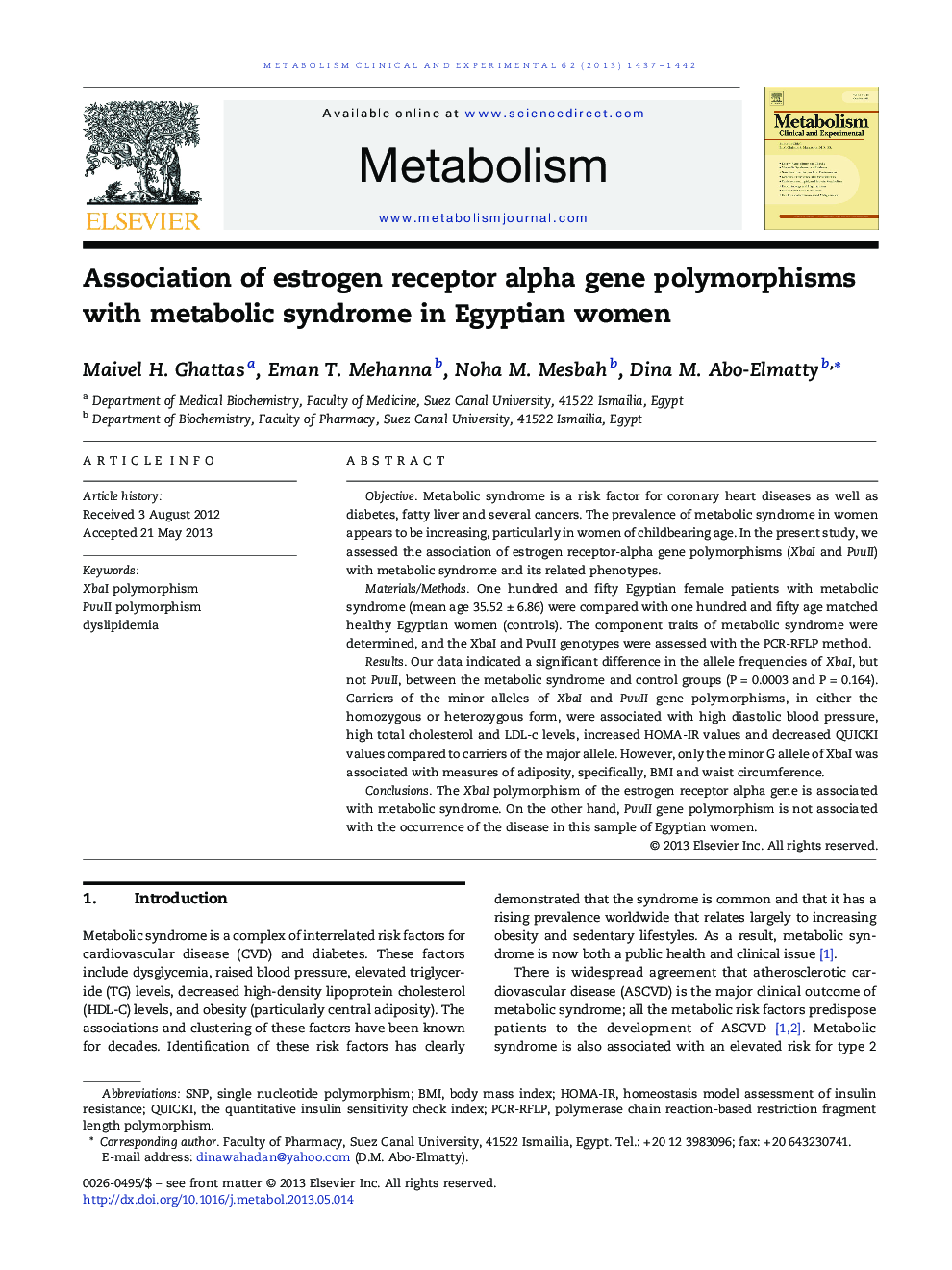| Article ID | Journal | Published Year | Pages | File Type |
|---|---|---|---|---|
| 2805920 | Metabolism | 2013 | 6 Pages |
:ObjectiveMetabolic syndrome is a risk factor for coronary heart diseases as well as diabetes, fatty liver and several cancers. The prevalence of metabolic syndrome in women appears to be increasing, particularly in women of childbearing age. In the present study, we assessed the association of estrogen receptor-alpha gene polymorphisms (XbaI and PvuII) with metabolic syndrome and its related phenotypes.Materials/MethodsOne hundred and fifty Egyptian female patients with metabolic syndrome (mean age 35.52 ± 6.86) were compared with one hundred and fifty age matched healthy Egyptian women (controls). The component traits of metabolic syndrome were determined, and the XbaI and PvuII genotypes were assessed with the PCR-RFLP method.ResultsOur data indicated a significant difference in the allele frequencies of XbaI, but not PvuII, between the metabolic syndrome and control groups (P = 0.0003 and P = 0.164). Carriers of the minor alleles of XbaI and PvuII gene polymorphisms, in either the homozygous or heterozygous form, were associated with high diastolic blood pressure, high total cholesterol and LDL-c levels, increased HOMA-IR values and decreased QUICKI values compared to carriers of the major allele. However, only the minor G allele of XbaI was associated with measures of adiposity, specifically, BMI and waist circumference.ConclusionsThe XbaI polymorphism of the estrogen receptor alpha gene is associated with metabolic syndrome. On the other hand, PvuII gene polymorphism is not associated with the occurrence of the disease in this sample of Egyptian women.
